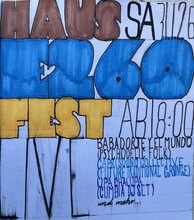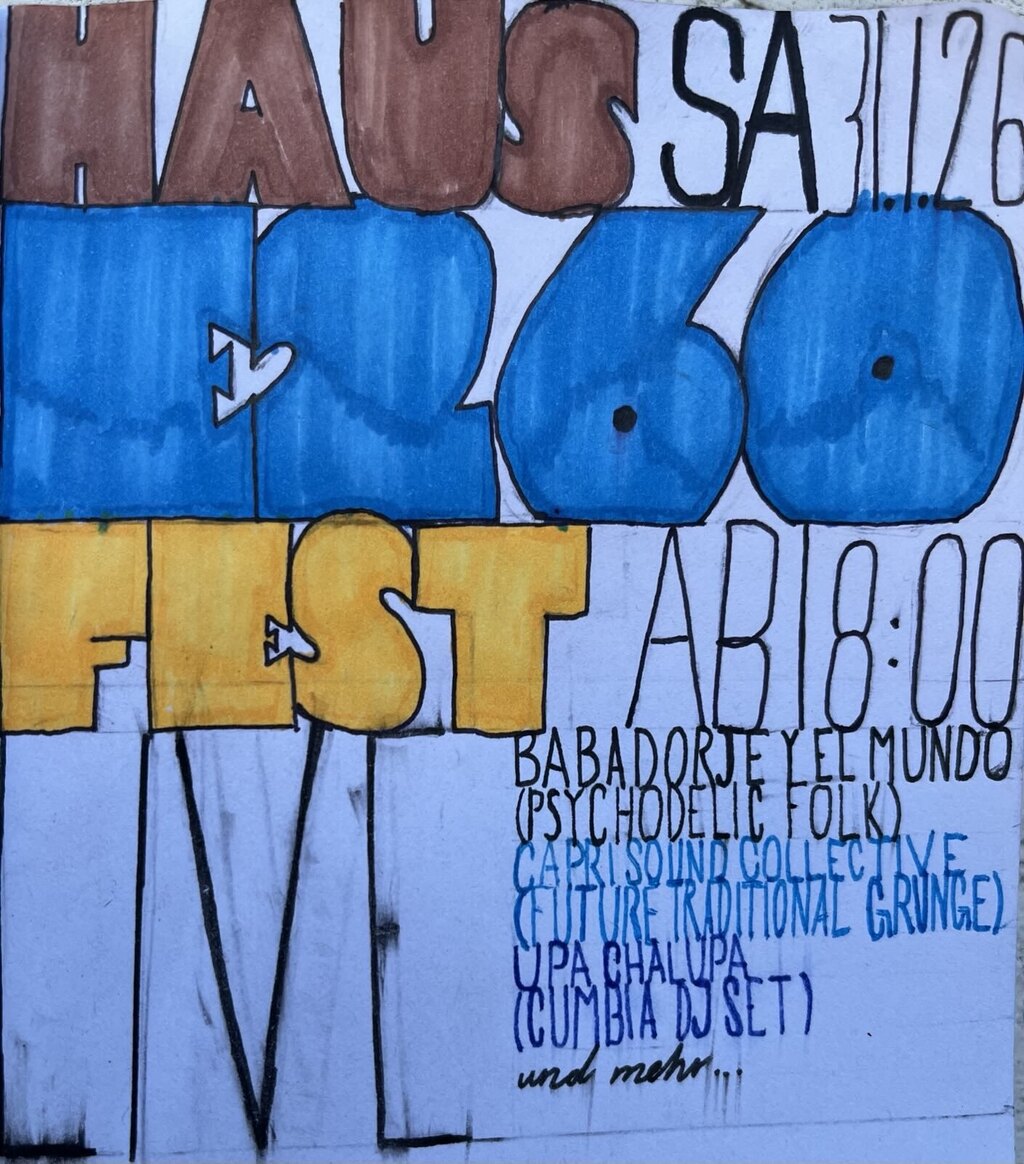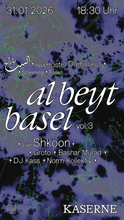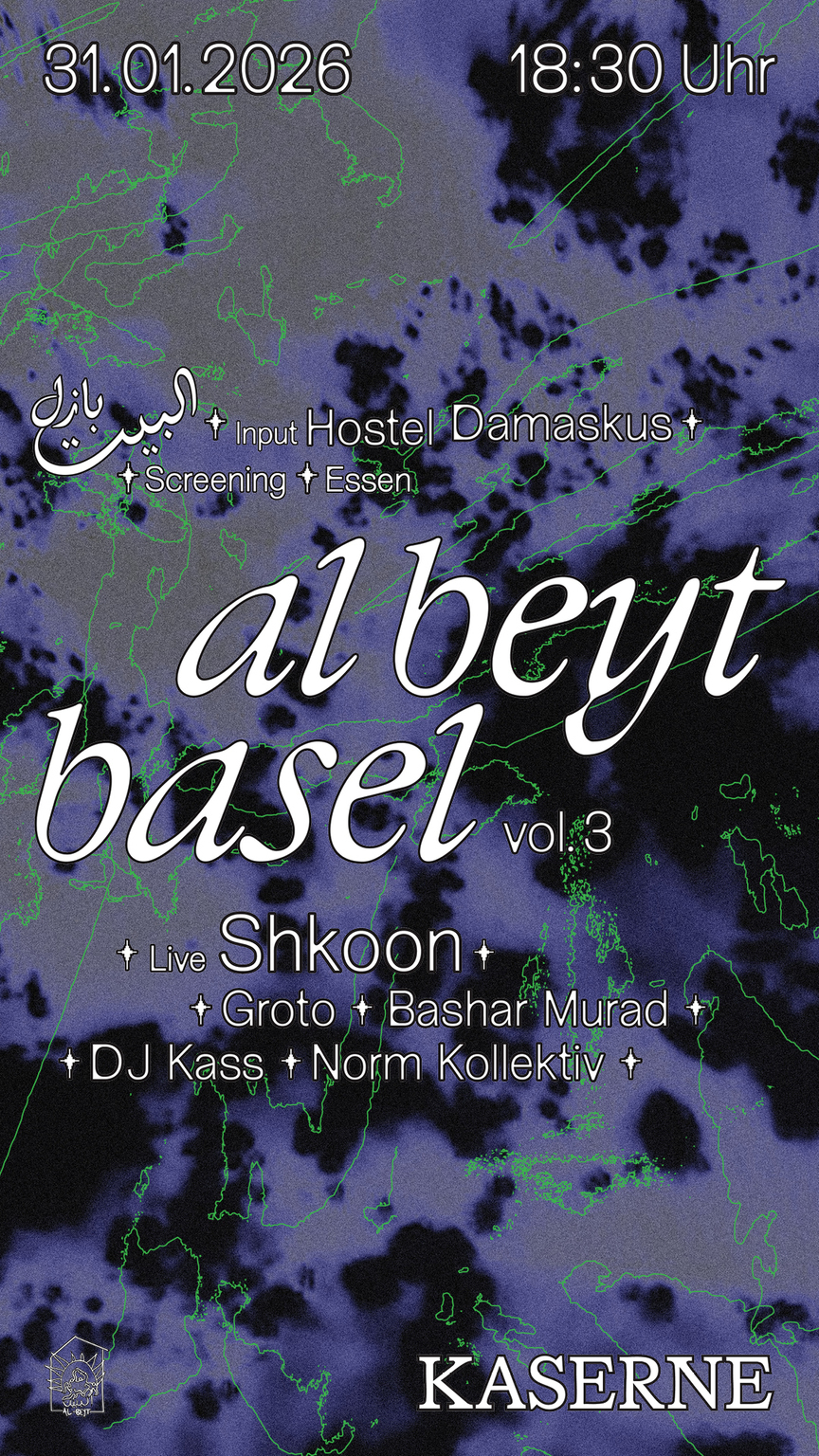




Priscilla Predator: geboren, leben sterben
In ihrer Duo-Ausstellung greifen Paul Fritz und Virginie Sistek eine ihnen altbekannte Figur wieder auf: Priscilla Predator, teils ausserirdische Messiasfigur, teils geheimnisvolle Gestaltwandlerin. Die Figur wurde einst für eine Radio-Hörspielserie erschaffen, die von ihren Abenteuern auf der Erde erzählt. Priscilla Predator ist eine Geschichte über Anpassung und die Schwierigkeiten der Kommunikation.
Für die Ausstellung im For wird Priscillas bescheidene Radiosendung in ein prototheatralisches Live-Stück verwandelt: eine Performance, die jeden Samstag stündlich ohne Schauspieler*innen und vollständig automatisiert präsentiert wird.


Kreuzstich
Teilst du das selbe Hobby, dann komm und stick mit uns!
Bring dein eigenes Kreuzstich-Projekt mit oder finde hier
etwas um es auszuprobieren. Fühl dich frei zu Stricken,
Häkeln, Nähen oder Zeichnen.
Hausfest
18h00 Kinderdisco
18h30 Surprise Band
19h30 Nachtessen
21h00 Konzerte
+ babadorje y el mundo (psychedelic folk)
+ capri sound collecive (future traditional grunge)
23h00 DJ’s
+ upa chalupa (Cumbia DJ Set)
+ steamy (DJ Set von Hardtek zu Hardbounce bis Poptrance)
…kommt in Scharen!
...come along all!







Al Beyt x Basel vol. 3
💫 Al Beyt x Basel vol. 3 💫
Für eine Welt ohne Grenzen & Kriege müssen wir die Vielfalt unserer Realitäten & Territorien mit den Kämpfen um Selbstbestimmung weltweit verbinden: Denen der Kurd:innen sowie der ganzen syrischen Bevölkerung, den Widerständen in den Städten Irans, den Protesten gegen ICE und vielen mehr..
Für einen Internationalismus von unten gegen die imperialen Interessen der autoritären Kräfte.
Programm
1830 Türöffnung
1900 Podiumdiskussion DE/FR
- Joseph Daher, syrisch schweizerischer Autor ordnet die geopolitische Lage um Syrien ein
- Aktueller Reisebericht aus Syrien
- Gemeinsam fragen wir uns, wie wir solidarischen Internationalismus leben können und stellen die Perspektive des Projekts in Damaskus vor.
2130 Groto (french congolese rap)
2215 Bashar Murad (palestinian pop)
2300 Shkoon (syrian-german electro duo)
0030 DJ Kass (syrian french eclectic)
0200 Norm Kollektiv (basel fem techno collective)
Essen & Büchertisch den ganzen Abend
Alle Einnahmen des Einlasses gehen direkt ans Projekt.
Richtpreise 15/25/35



RESISTOR - Ein querfeministisches Tanzstück
Welche Normen, Erwartungen und Schönheitsideale prägen uns im öffentlichen Raum? Wie wählen wir Haltung, Bewegung oder Sitzposition, um Blicken, Kommentaren, Belästigung oder Gewalt auszuweichen – und wie entsteht Widerstand im Kleinen?
Der Verein femtak – queerfeministisches Tanzkollektiv Basel – präsentierte 2023 im ROXY Birsfelden das partizipativ entwickelte Tanzstück «Resistor» und erforscht nun mit einem neuen Ensemble dieselben Fragen weiter. Die Performance verhandelt Anpassung und Aufbegehren: Persönliche Erfahrungen mit patriarchalen Machtstrukturen, Körperbildern und Schönheitsnormen werden in verbalen und tänzerischen Recherchen gesammelt, diskutiert und in Bewegung übersetzt.
Das offen arbeitende Kollektiv femtak bringt mit «Resistor» diese Praxis auf die Bühne. Wut wird zu Kraft, Stille zu Sprache, Gemeinschaft zu Widerstand.
Nach der Performance ist das Publikum eingeladen, mitzutanzen und Teil des Austauschs zu werden.
Tickets reservieren unter femtak@proton.me oder direkt an der Abendkasse kaufen.
Eintritt: 15 / 25 / 35 CHF


